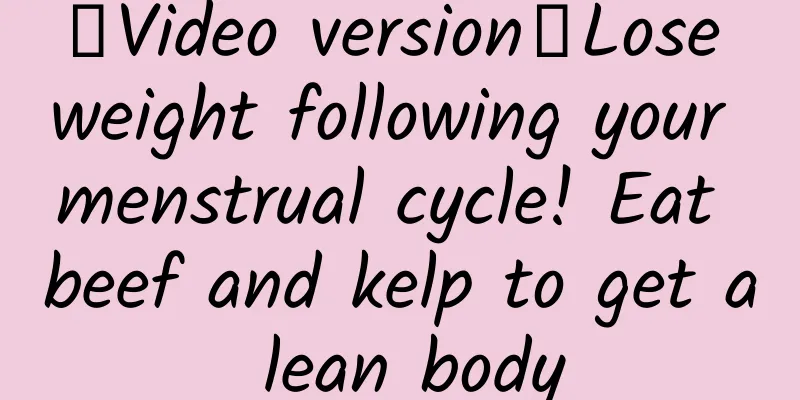What to do if you have a slow metabolism? 6 ways to speed up your metabolism

|
Aerobic exercise is the fastest and quickest way to speed up your metabolism. The most perfect effect is to exercise three times a week, 30 minutes each time, and your heart rate should reach over 130 beats per minute after exercise. At the same time, you should develop good habits of going to bed early and getting up early, eating breakfast, and drinking plenty of water, so that your metabolism will be improved. What is metabolism? Metabolism is the name for all the chemical changes your body undergoes to keep you alive. The process allows you to breathe, your blood to flow, your brain to function, and to get the energy you need from food. Basal metabolic rate refers to the amount of calories (calories) required daily to ensure the normal functioning of various organs when the body is in a static state. There is a direct relationship between metabolic rate and body composition. The relationship between metabolism and dieting and weight loss In fact, if the human body reduces its calorie intake, its metabolic rate will also decrease. The human body is a very smart energy bank. If you absorb more, it will store it (converted into fat); if you absorb less, it will reduce consumption (lower the basal metabolic rate), and may also reduce "expenditure" on organ maintenance and immune capacity. When you diet in the hope of losing weight, your body's response to your prolonged lack of calorie intake is "you are starving." At this time, your body will automatically reduce its metabolic rate, thereby reducing calorie consumption and retaining as many calories as possible. This seems to defeat the purpose of your diet. What’s even more frightening is that once you can no longer bear the hunger and return to the calorie supply before dieting, the "lowered" basal metabolic rate will not be able to return to its original level for a while, but will cause calorie hoarding, resulting in a situation where you get fatter the more you lose weight. If you exercise more while losing weight, you can offset these changes. Maintaining a well-balanced diet and exercising will allow your body to maintain a metabolic rate that burns calories. Breakfast kicks your metabolism into gear If you want to speed up your metabolism and lose weight, breakfast is the most important meal of your day. According to relevant research, people who eat breakfast are more likely to lose weight than those who skip breakfast. Because when you sleep, your body's metabolism slows down and only picks up again when you eat again. So, if you skip breakfast, your body's ability to burn calories won't reach normal levels until lunch. That's why it's best to start the day with a 300 to 400-calorie breakfast that immediately gets your metabolism into "working mode." Establish a regular sleep schedule In addition to fatigue, lack of sleep can also lead to health problems, such as weight gain. An American epidemiological journal pointed out that if a woman sleeps less than 5 hours a night, her chances of gaining weight will increase by 32%. Lack of sleep can disrupt our body's metabolic function and slow down fat consumption. What’s worse, severe lack of sleep will cause the body to secrete more hunger hormones than normal, making us eat more. Aerobic exercise is the fastest way to increase metabolism Increasing the quality and quantity of exercise is indeed the most direct and fastest way to speed up metabolism, and it must be done at least "3 times a week, 30 minutes each time, and a heart rate of more than 130 beats per minute after exercise" to be beneficial to health. Don't underestimate this short 30 minutes of exercise. In addition to helping you burn calories and lose weight, the greater benefit is that after exercise, it can bring oxygen to all parts of the body, greatly increasing the metabolic rate and effectively burning fat. The effect will last for several hours. So, throw away the excuse that you don’t have time to exercise! Daily walking is the best opportunity for exercise. You might as well take advantage of the break after lunch to walk around the company at a steady pace. You don't have to sweat profusely to improve your metabolism, help digestion and prevent constipation. Add weight training to increase muscle tissue Did you know? The more muscle tissue in the human body, the more calories it can burn, which speeds up the metabolism. Unfortunately, after we are over 30 years old, muscles will gradually be lost, which will lead to a decrease in metabolism. Therefore, if you want to maintain a good metabolic rate, you must exercise quickly to increase the decreasing muscle mass. For women with less muscle tissue, weight training exercises such as weightlifting that can help increase muscle are particularly important, because increasing muscle mass can increase metabolism. Once muscle mass increases, you can increase your daily calorie consumption by 100 to 300 calories, or even more. Don’t worry that you will develop “beautiful muscles” if you do too much strength training, because the muscle tissues of men and women are different. Besides, it’s not easy to become a bodybuilder! Drink plenty of water Basically, just drinking more water can promote gastrointestinal motility and excrete excess toxins and waste from the body through sweating or urination, thereby accelerating metabolism. If you drink mineral water from a good water source, it will be more beneficial to your health, as you can replenish the minerals needed by the body while drinking water. The reason why some imported mineral waters on the market are called "slimming water" is not a random boast, but because they are rich in magnesium that can accelerate the metabolism of calories. Drinking more water not only does not increase calories, but also accelerates metabolism, which is really killing two birds with one stone. Take a deep breath Don't doubt it, the way you breathe does have an impact on your metabolism. The purpose of breathing is to deliver fresh oxygen into the lungs, and after gas exchange, expel unwanted waste and carbon dioxide from the body, thereby purifying the blood and promoting metabolism and circulation. Unfortunately, most breathing is an unconscious reflex action. The capacity of air sent into the lungs each time you inhale is really limited. In fact, the faster the breathing rate, the smaller the breathing volume. The oxygen that is finally inhaled is sent out again before it has time to take effect. Coupled with short exhalation, the waste carbon dioxide continues to remain in the lungs, so that’s it! Instead of taking a hundred short breaths, it is better to remind yourself to take deep breaths frequently to speed up the metabolism of waste in the body. Source: 39 Health Network www.39.net Please do not reprint without written authorization |
<<: Edema-reducing competition! Red beans are better than mung beans in all seasons
>>: Get rid of fat from your waist! 3 tips to avoid abdominal obesity
Recommend
What are the causes of right ovarian cysts and what foods are suitable for patients
What is the cause of right ovarian cyst? What foo...
Excessive tension during menstruation can cause dysmenorrhea
Many women suffer from dysmenorrhea, the causes o...
What is the underlying cause of dysmenorrhea?
The root cause of dysmenorrhea is usually related...
What is the cause of congenital absence of vagina?
How does congenital absence of vagina occur? This...
What are the causes of dysmenorrhea?
Dysmenorrhea causes great physical harm and pain ...
The symptoms of late ectopic pregnancy are as follows
Ectopic pregnancy is a common female disease. In ...
Green plum detoxifies! 1 20 calories per tablet helps to remove stool
Around the Qingming Festival is the best time to ...
How much does painless induced abortion cost?
Painless induced abortion is the abortion method ...
Experts explain how to scientifically regulate dysmenorrhea
Female friends who suffer from dysmenorrhea must ...
What are the effects of ovarian cysts and what are the dietary taboos?
What are the effects of ovarian cysts? What are t...
Is it okay to have an abortion in three months of pregnancy?
Pregnancy is a happy thing, but once it happens t...
Three principles for correct ovarian care
The ovaries are important reproductive organs for...
What method should be used to treat cervical warts?
In the treatment of cervical warts, Western medic...
Causes of irregular menstruation
Irregular menstruation is also called menstrual d...
How many symptoms of irregular menstruation do you know?
Many female friends often experience irregular me...









